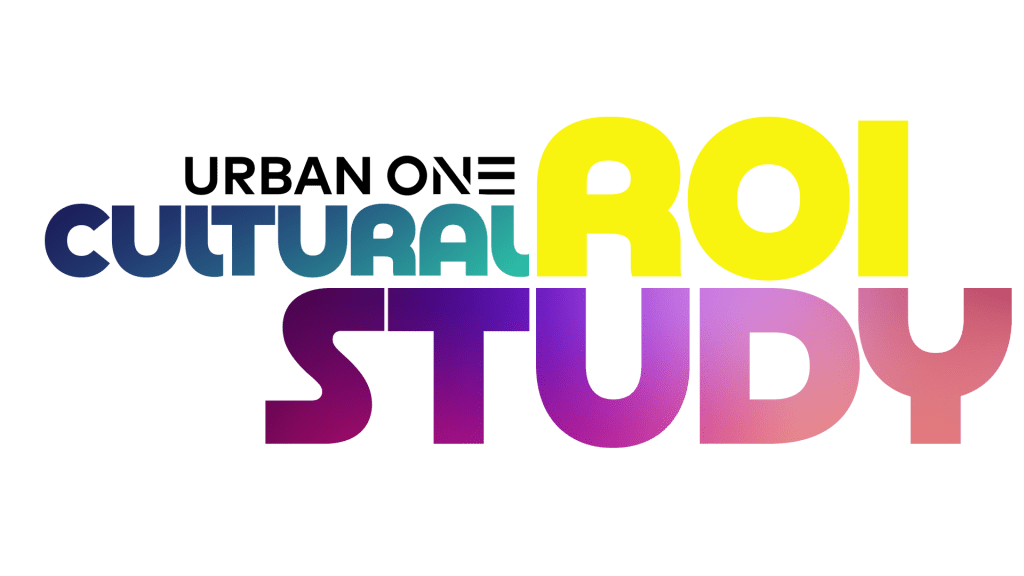Black Culture Is The Culture: Gen Z, Millennials Love To See It

In recent years, we’ve seen more and more companies retreat from diversity, equity, and inclusion (DEI) initiatives and commitments to representation. While consumers have continually voiced their displeasure with this trend, Urban One’s “Cultural ROI” study, titled “Influence to Impact: Black Culture’s Role in Brand Growth,” reveals that investing in Black culture isn’t simply the right thing to do; it’s also profitable.
“Cultural ROI is the vehicle for us at Urban One to further our mission to help educate the industry and brand partners alike on the importance that intentions must be rooted in strategy, and this new economy requires development of total market plans that are inclusive and representative of authentic experiences,” Jeff Meza, EVP, Head of Branded Entertainment & Integrated Marketing for Urban One, said in a press release.
Urban One worked with Tapestry and Screen Engine/ASI to conduct the Culture ROI study. They surveyed 3,044 U.S. consumers across generations and racial groups. The survey found that 79% of U.S. consumers believe Black Americans have influence, with 1 in 2 feeling that Black culture is present in all aspects of American life. Over 50% of consumers recognize Black cultural impact in music, fashion, food, politics, sports, and beauty. Generationally, over 80% of Gen Z and Millennials say they personally benefit when Black culture is well-represented, with 51% of consumers trusting brands more when Black consumers are consistently represented.
“I am incredibly proud of the work we’ve done to quantify the undeniable impact that Black consumers have on U.S. culture. This study not only demonstrates their impact and influence on broader consumer behavior but also underscores the value of authentically connecting with this segment – and the business risks of failing to do so,” shared Audrey Cochran, VP, Television and Digital Research at Urban One.

The consumer boycotts surrounding companies that publicly retreated from their commitments to DEI are a perfect example of Black cultural ROI. Target spent much of the 2010s positioning itself as a progressive retailer. Target created programs designed to help Black employees advance in the company, often had large retail displays celebrating Pride Month and Black History Month, and it was one of the first companies to recognize Juneteenth as a paid holiday for its employees before it became a federal holiday.
The last two years have seen Target end its DEI commitments and drastically scale back the in-store presence of its Black History Month and Pride Month campaigns in the wake of the 2024 election. As a result, Target has been the focus of several consumer boycotts, with retail foot traffic trending downward, share prices dropping, and quarterly sales falling. This is a clear example of seeing cultural ROI go down as a result of abandoning Black dollars.
Conversely, Costco’s shareholders voted to maintain its commitments to DEI initiatives despite the federal government’s shifting attitude toward DEI. Costco has seen its quarterly sales surpass investor expectations, with consumer sentiment remaining strong. A poll conducted by Axios earlier this year found that companies that maintained their DEI initiatives had better consumer reputation.
This year also saw the positive impact of Black cultural influence with the release of Sinners. Written and directed by Ryan Coogler and starring a predominantly Black cast, Sinners is one of the most successful movies of 2025. The film had one of the strongest holds from its opening weekend to the second weekend in film history. Sinners was noted for its authenticity and wholehearted celebration of Black culture. Warner Bros wholeheartedly invested in Black culture, and it paid off at the box office. If that doesn’t demonstrate the impact of Cultural ROI, I don’t know what does.
Through both Urban One’s Cultural ROI study and the real-world impact of companies retreating from Black culture, 2025 has revealed how strong Black culture’s influence really is. It sets trends, builds consumer loyalty, and drives trust with younger generations. The data makes it abundantly clear that Cultural ROI must be considered by any company serious about gaining a competitive advantage.
SEE ALSO:
Urban One Addresses Los Angeles Wildfires
Urban One Radiothon For St. Jude Kids Raises $1.6 Million
Black Culture Is The Culture: Gen Z, Millennials Love To See It was originally published on newsone.com









